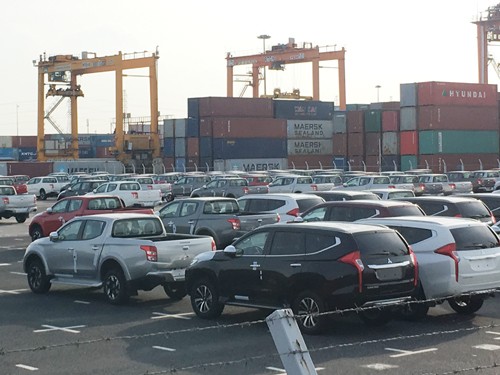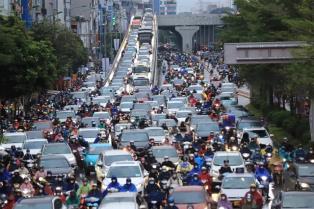The decline in domestic automobile consumption and its drop to fifth place in Southeast Asia can be attributed to both external and internal factors, according to industry insiders.

The decline in domestic automobile consumption and its drop to fifth place in Southeast Asia can be attributed to both external and internal factors, according to industry insiders.
The Association of Southeast Asian Automobile Manufacturers Association (AAF) reports that Indonesia took the lead in car sales with more than one million units in 2023, down 4 per cent over the same period last year. Malaysia was in second with 799,731 units, an increase of 10.9 per cent compared to 2022, meanwhile Thailand came in third with 775,780 units, a decrease of 8.7 per cent compared to 2022.
Philippines stood fourth with 429,807 cars, an increase of 21.9 per cent compared to 2022. Việt Nam dropped to fifth with 301,989 cars, down 25.4 per cent compared to the figure of 2022. They were followed by Singapore and Myanmar with 38,670 vehicles and 3,357 vehicles respectively in 2023.
According to the Vietnam Automobile Manufacturers Association (VAMA), in 2023, all three vehicle segments decreased sharply. Passenger cars decreased by 27 per cent, commercial vehicles decreased by 16 per cent and specialised vehicles decreased by 56 per cent year-on-year.
In specifics, 181,380 locally assembled cars and 120,600 CBU vehicles were sold, down by 20 per cent and 32 per cent compared to 2022, respectively.
These figures did not include sales from non-member brands such as VinFast, Audi, Jaguar, Land Rover, Nissan, Subaru and Volkswagen, as they have yet to publicise their sales data. VinFast currently does not provide monthly sales data in Việt Nam.
According to experts, the auto industry has been experiencing a decline due to various factors such as unpredictable developments in the economy and unstable bank interest rates. These factors have affected the purchasing power of people, leading to a slowdown in car sales.
To address this situation and stimulate the market, the Government has implemented certain measures. One of these measures is a 50 per cent reduction in registration fees for domestically produced and assembled cars from July 1, 2023, to December 31, 2023. In addition, businesses have been encouraged to support the remaining 50 per cent of the fees or provide 100 per cent fee incentives for imported cars. However, despite these efforts, the auto market has not achieved a significant breakthrough in sales.
It is anticipated that car purchasing power may improve in early 2024 due to increased shopping needs associated with the celebration of the Lunar New Year. However, the future purchasing power in the following months remains uncertain, as car manufacturers may adjust their incentives and business policies, potentially impacting sales. — VNS





